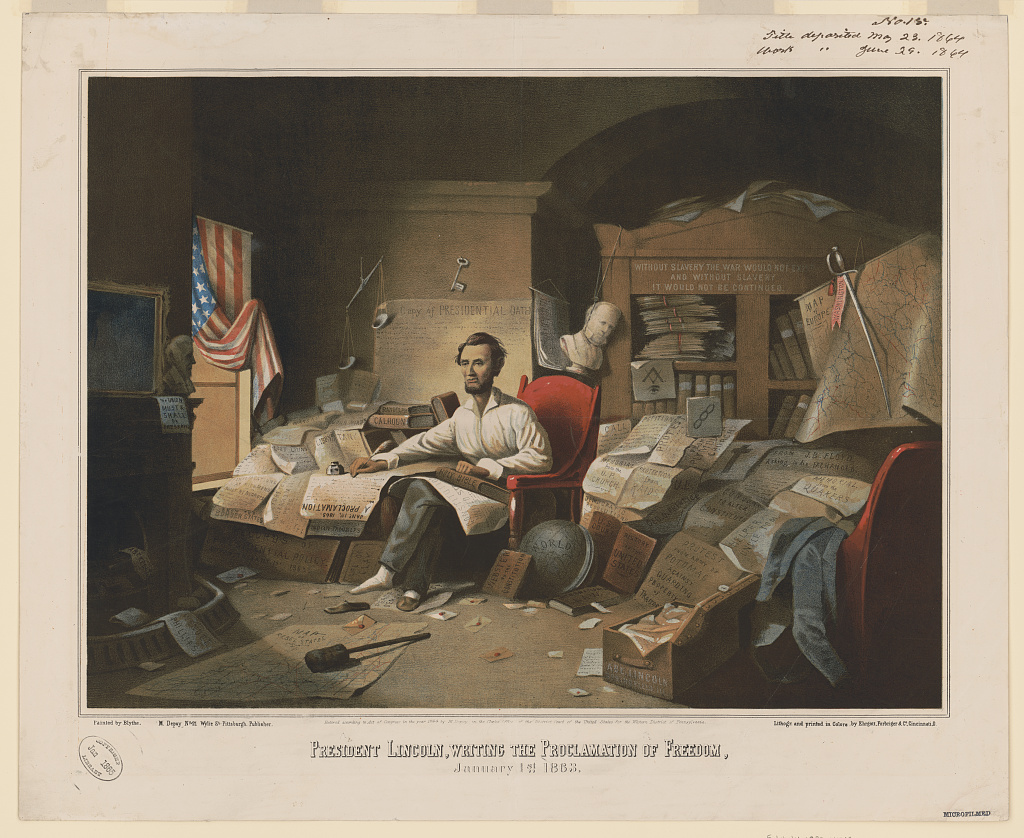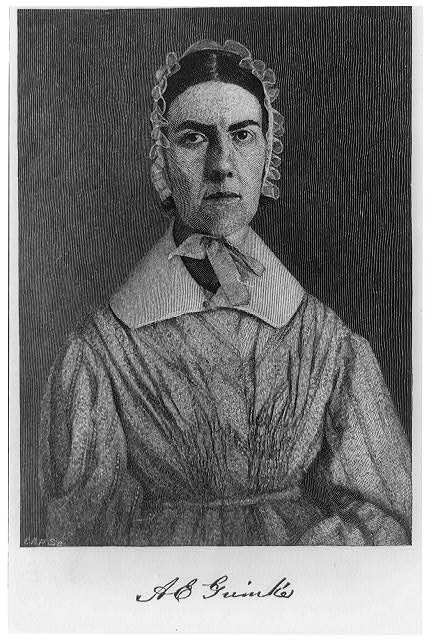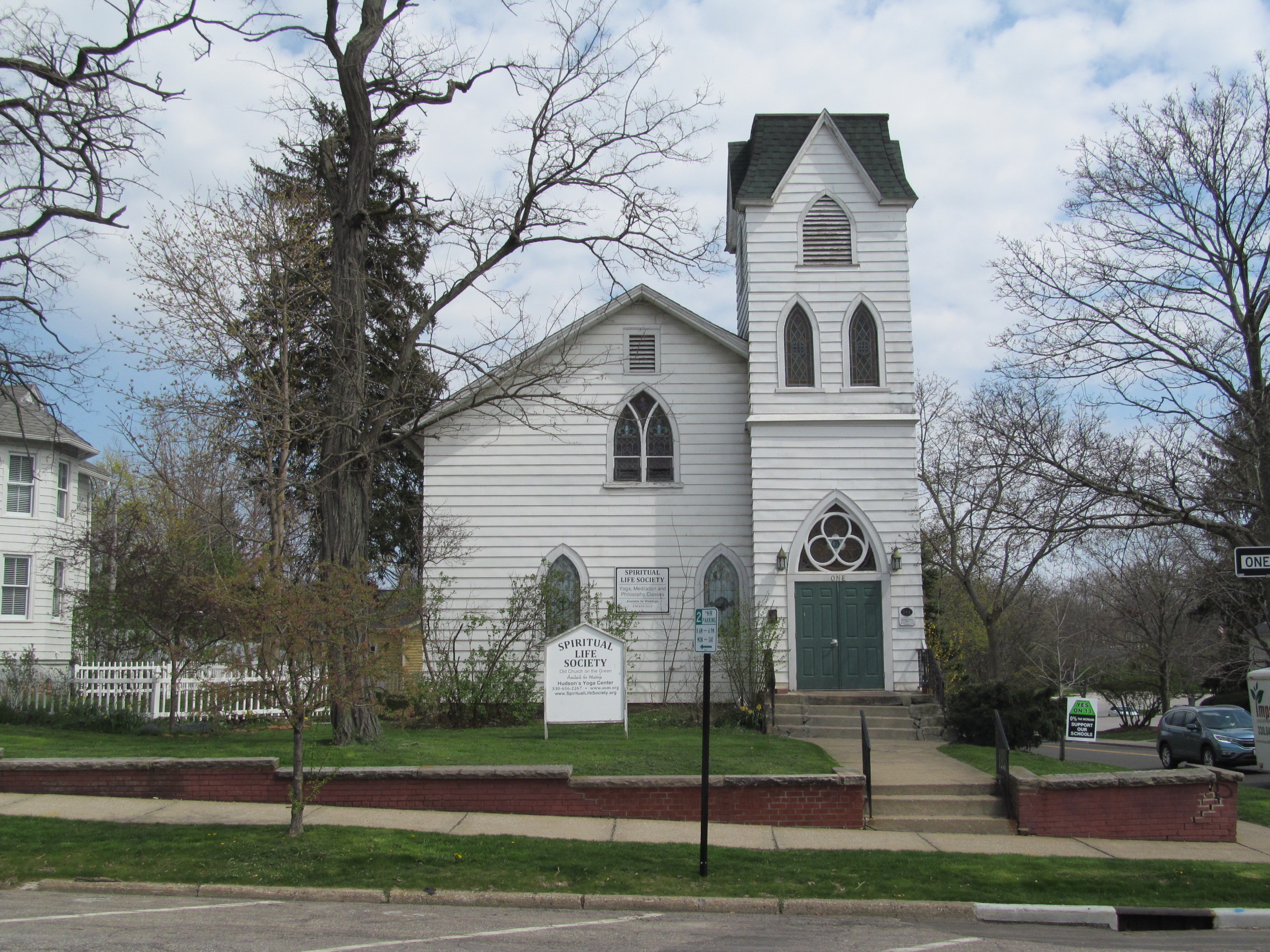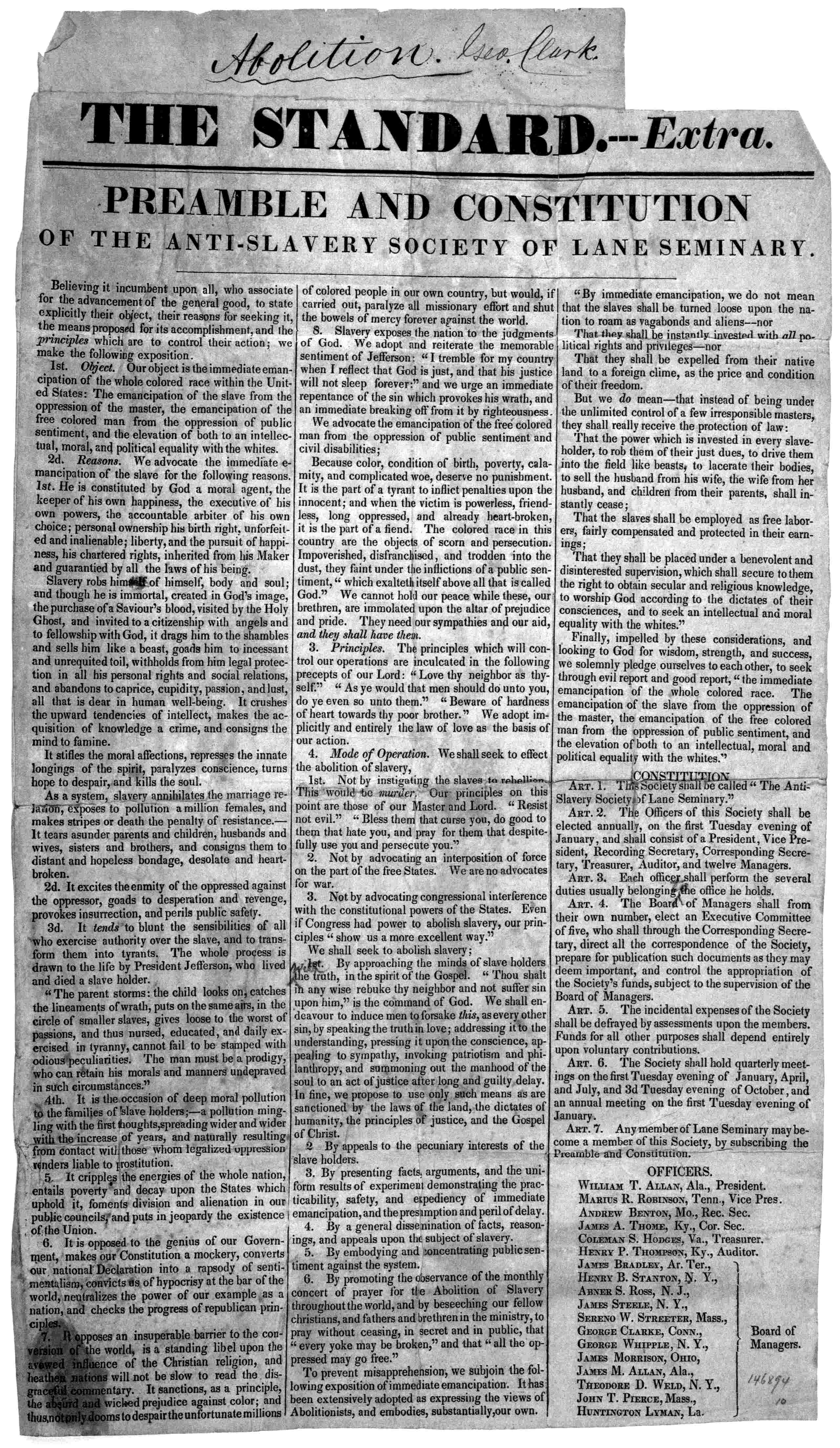Religious Motivations for Abolition
Evangelicals and Emancipation
January 2018
David G. Blythe’s portrayal of Lincoln's composing the Emancipation Proclamation is suffused with Christian symbolism, indicative of his view that it represented the culmination of several decades of religiously inspired reform. In deference to the artist's interpretation, we consider his work alongside some significant sources of evangelical opposition to slavery in nineteenth century America.



